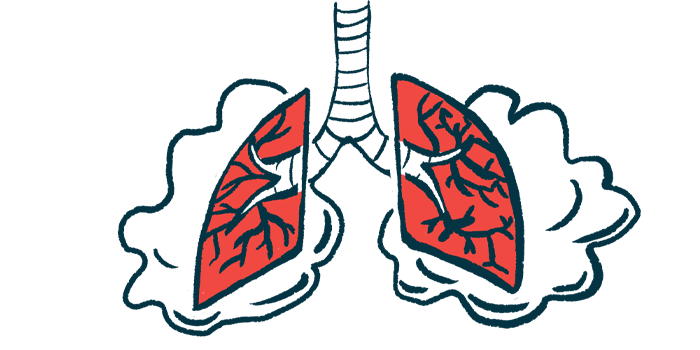PEP Buddy Device Available Soon for Preventing Shortness of Breath
Written by |

Researchers have developed a device to prevent shortness of breath in people with chronic obstructive pulmonary disease (COPD) and other chronic lung conditions.
When breathing through the hands-free device, called PEP Buddy, the user’s exhales are prolonged, resulting in slower breathing rates and preventing breathlessness.
“There are many benefits of slow breathing and prolonged exhalation,” Muhammad Ahsan Zafar, MD, an associate professor at the University of Cincinnati (UC) College of Medicine and one of the device’s developers, said in a university press release. “This becomes a tool to do it easily and consistently.”
In people diagnosed with COPD, it takes longer for inhaled air to leave the lungs, leading to air retention during exhalation — a condition called dynamic hyperinflation, or “air-stacking.” As a result, they often experience symptoms such as breathlessness and low oxygen levels, especially during physical activity.
“One of the things many people in our study reported is there also is fear of getting short of breath,” Zafar said. “And that fear itself also propagates inactivity. People would not challenge themselves. They would not do exertional things just because they don’t want to get short of breath.”
To find a solution for this problem, Zafar and his colleague Ralph J. Panos, MD, worked for the last decade to develop PEP Buddy.
“This would be a dream for a physician like me if you’re able to help people with such a low-cost, simple intervention that does not have any side effects,” Zafar said.
With that goal in mind, Zafar and Panos created PEP Buddy to be reusable, dishwasher-safe, and easy to use.
“It’s a very simple device like a whistle,” Zafar said. “You can hold it in your mouth without your hands.”
When exhaling through the device, it gives a gentle back pressure that helps keep lung airways open, preventing their collapse. This pressure, combined with prolonging exhalation and reduced breathing rates, helps to prevent breathlessness associated with air stacking.
The device can be used during physical activity to prevent breathlessness, or afterwards, to shorten recovery time.
“People found benefit in multiple ways in our study,” Zafar said. “Some people found it useful while they were exerting, while they were walking. And some found it useful right after exertion.”
According to the device’s website, 72% of COPD patients who tested the device experienced meaningful improvements in shortness of breath, and about a third of users, who normally experienced drops in oxygen levels while walking, had increased oxygen when using the device.
Some patients reported that these breathing improvements were linked to improved quality of life, including lower stress and anxiety levels. This led the team to believe that PEP Buddy might benefit a range of people beyond those with lung disease, including individuals dealing with stress and anxiety, or practicing mindfulness, meditation, or yoga.
“Slow breathing and focused breathing have many effects on our body,” Zafar said. “It reduces the stress hormone levels, it reduces the heart rate, and it also reduces the blood pressure.”
The PEP Buddy startup comes out of the UC Venture Lab, designed as a launchpad for innovators in the university community to develop their startup ideas.
“It’s incredible what happens when you equip smart, dedicated innovators with the resources and connections they need to make ideas into reality,” said David J. Adams, UC’s chief innovation officer.
“PEP Buddy is evidence of what our amazing faculty are capable of here at the University of Cincinnati, and it’s proof of what happens when you create a connected ecosystem for innovation like we have here: You reach breakthroughs,” Adams added.
The device will be available for a limited-time purchase price of $25 on the PEP Buddy website and Amazon later this month. The team hopes it will eventually be available for purchase in stores and doctor’s offices.







